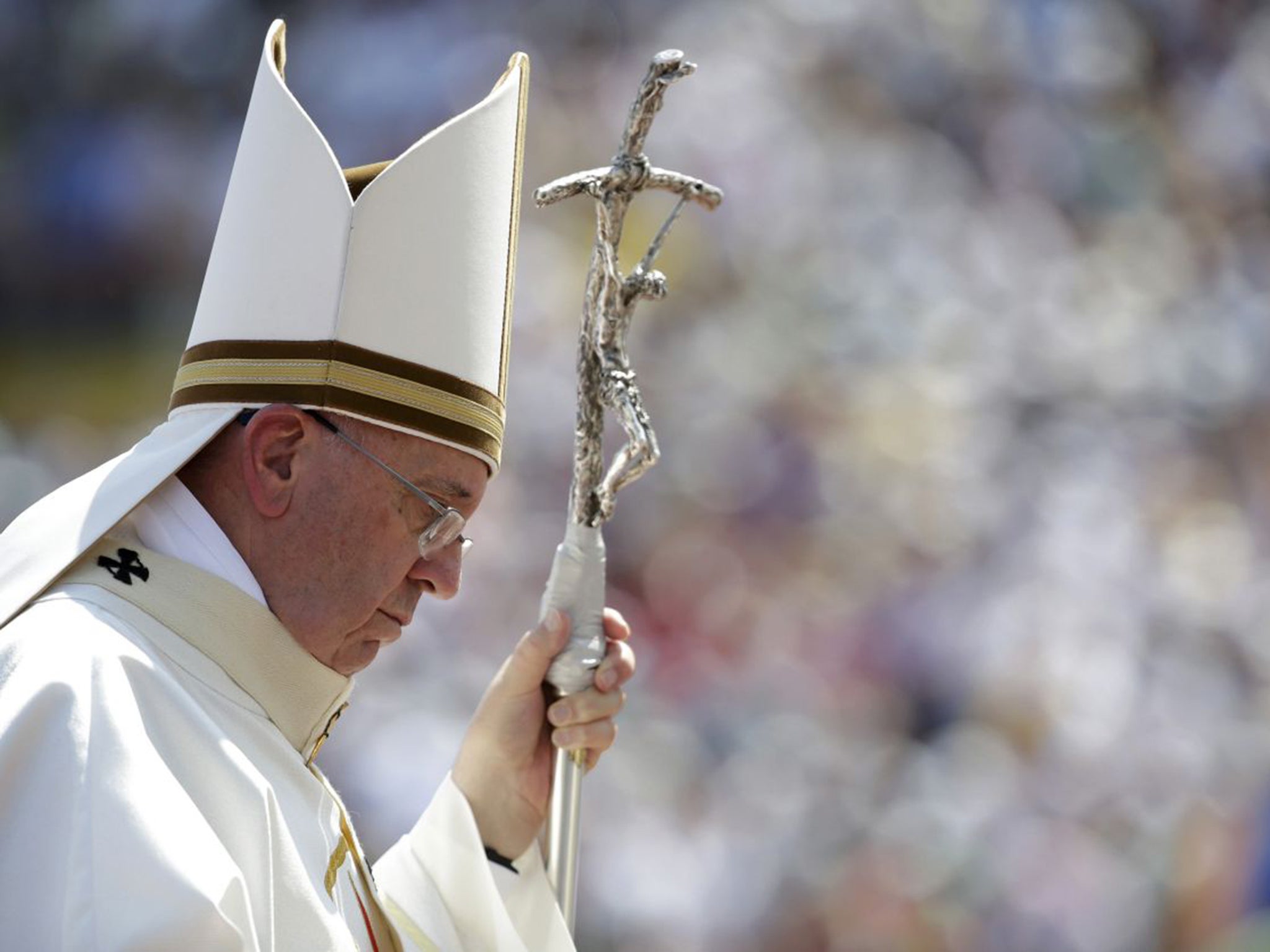The Pope is finally addressing the gaping hole in the Judaeo-Christian moral tradition
Pope Francis’s climate change letter makes the Church a major political force

Your support helps us to tell the story
From reproductive rights to climate change to Big Tech, The Independent is on the ground when the story is developing. Whether it's investigating the financials of Elon Musk's pro-Trump PAC or producing our latest documentary, 'The A Word', which shines a light on the American women fighting for reproductive rights, we know how important it is to parse out the facts from the messaging.
At such a critical moment in US history, we need reporters on the ground. Your donation allows us to keep sending journalists to speak to both sides of the story.
The Independent is trusted by Americans across the entire political spectrum. And unlike many other quality news outlets, we choose not to lock Americans out of our reporting and analysis with paywalls. We believe quality journalism should be available to everyone, paid for by those who can afford it.
Your support makes all the difference.The word momentous is over-used, but we can apply it with justice to the pronouncement coming out of the Vatican on Thursday from Pope Francis about poverty, the environment and climate change.
The Pope’s forthcoming encyclical, or teaching letter, entitled Laudato Si, is addressed to the world’s 1.2 billion Catholics and is expected to be a dramatic intervention in the international political process, insisting that the fight against global warming, no less than the fight against misery and destitution, is a moral issue which must be addressed by the whole world.
The timing is remarkable. In essence, the 78-year-old Argentinian Pontiff is throwing the entire moral force of the Church into the negotiations for a new climate treaty to be concluded – it is hoped – at the UN climate conference in Paris in December. There has never in modern times been such a decisive involvement of the spiritual with the political – and certainly not with regard to the environment.
For even though Francis’s predecessor, Benedict XVI, the German Joseph Ratzinger, acquired the nickname of the Green Pope for his enthusiasm for matters environmental – he sought to make the Vatican carbon-neutral and installed solar panels – it is Francis, the former Jorge Bergoglio, Archbishop of Buenos Aires, who may come to be the true long-term bearer of that title.
He took Francis as his papal name after Saint Francis of Assisi, the 13th century Italian saint who was devoted not only to the poor, but – almost uniquely for a Catholic prelate in the past – to the natural world. The encyclical’s title, meaning Be Praised, is not in the normal Latin, but is actually medieval Italian, and comes from “The Canticle of The Sun”, St Francis’s famous poem in which he refers to Mother Earth who feeds us.
In aligning himself with St Francis, the Pope addresses what has always been a gaping hole in the formidable Judaeo-Christian moral tradition – the absence of reverence for the earth itself (in contrast to some other religions, such as Buddhism).
For centuries, the Church’s view of the earth was that of The Bible in Genesis 1:28 – “Be fruitful and multiply, and replenish the earth and subdue it; and have dominion over… every living thing that moveth upon the earth.” In recent decades, however, Catholic theologians have sought to move away from ideas of domination and subjugation towards an ethic of stewardship, the stewardship of God’s creation – and Pope Francis’s encyclical is the culmination of this shift, likely to move the church decisively into line with environmental thinking.
But it is the direct effect it will have in the outside world, the real world of international politics, which is likely to be the explosive aspect of Laudato Si.
The encyclical will throw the Church’s enormous moral endorsement behind the longstanding position of climate scientists that global warming is a real, urgent and terrible problem for the world. It will thus be a colossal slap in the face for those most inveterate opponents of action on climate change, those determined pretenders that the whole thing is a huge left-wing hoax, America’s Republicans. Their discomfiture will be increased substantially by the fact that they are overwhelmingly Christian (and not a few are Catholics) and attacking the Pope aggressively over his views will be very difficult.
If the encyclical is as trailed, it may prove a tipping point in international opinion about climate change, and be a powerful force for the successful conclusion of a climate treaty in December. It can certainly be described as momentous. “Pope Francis is saying the environment is a moral issue, because if we don’t rethink our relationship with God’s creation, the consequences will disastrous,” says Catherine Pepinster, editor of Britain’s Catholic weekly, The Tablet. “It’s an unprecedented intervention in a political debate.”
Join our commenting forum
Join thought-provoking conversations, follow other Independent readers and see their replies
Comments